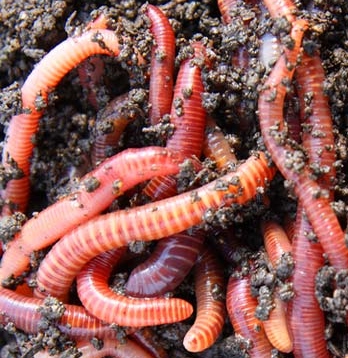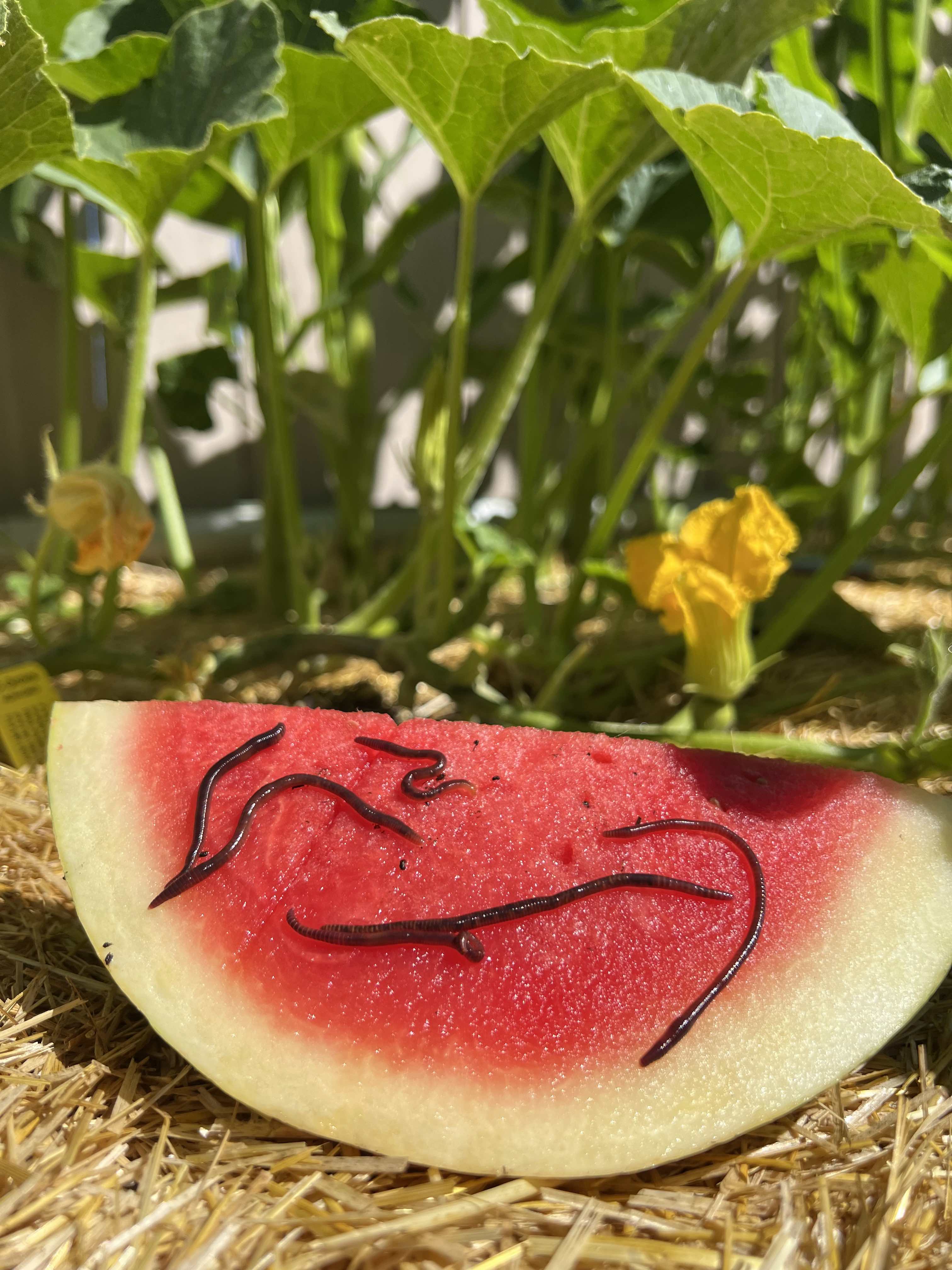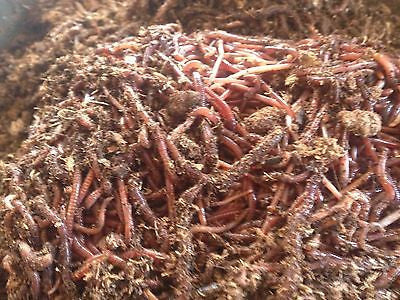Red Wiggler Worms offer for sale - Lasting Waste Management Solution
Red Wiggler Worms offer for sale - Lasting Waste Management Solution
Blog Article
Red Wiggler Worms Demystified: Opening the Tricks of Vermiculture for Greener Living and Nutrient-Rich Dirt
In the realm of sustainable techniques for improving soil quality and advertising eco-conscious living, red wiggler worms play a pivotal yet usually forgotten function. These simple creatures have the exceptional capability to transform natural waste right into nutrient-rich castings that act as a potent all-natural plant food. By delving into the globe of vermiculture, one can discover a huge selection of benefits that extend far past standard composting methods. Recognizing the details of caring for these worms, optimizing their atmosphere, and using their castings can lead to a greener lifestyle and healthier soil for plants to flourish.
The Function of Red Wiggler Worms
Red Wiggler worms play an important role in composting systems by successfully breaking down organic matter right into nutrient-rich castings. These starved eaters eat a variety of organic products, such as cooking area scraps, yard waste, and paper products. As they feed, the worms' digestive processes damage down the natural matter into a fine, dark, and nutrient-dense product referred to as worm spreadings or vermicompost.
The castings generated by Red Wiggler worms are extremely beneficial for soil health and plant development. They are abundant in important nutrients like potassium, phosphorus, and nitrogen, which are essential for supporting healthy and balanced plant development. In addition, worm spreadings contain useful microorganisms and enzymes that aid boost dirt framework, rise water retention, and boost nutrient uptake by plants.
Advantages of Vermicomposting

Moreover, vermicompost, the nutrient-rich end product of vermicomposting, offers as an excellent natural fertilizer and dirt conditioner. It improves soil framework, enhances dirt oygenation, and raises dirt moisture retention. These residential properties add to healthier plants with more powerful root systems and better resistance to bugs and conditions. Vermicompost likewise improves the dirt with essential nutrients like nitrogen, potassium, and phosphorus, promoting plant development and general soil fertility.
Additionally, vermicomposting supports lasting horticulture methods by giving a natural and chemical-free choice to artificial plant foods. Red Wiggler Worms. This environmentally pleasant approach not only enhances the soil however likewise helps in reducing dependence on harmful chemicals, advertising a greener and extra lasting means of horticulture
Establishing a Worm Container
When establishing a worm bin for vermicomposting, appropriate arrangement is important to ensure the success of the composting process. The first step in setting up a worm container is picking an ideal container.
After adding the bedding, introduce the red wiggler worms to the bin. The worms must then be supplied with food scraps such as fruit and vegetable peels, coffee premises, and eggshells.
On a regular basis keep track of the dampness levels and temperature level in the worm bin to ensure ideal conditions for the worms. With appropriate setup and upkeep, the worm bin will successfully convert natural waste into nutrient-rich compost for your plants and garden.
Harvesting Worm Spreadings
To successfully gather nutrient-rich worm spreadings from your vermicomposting system, an organized harvesting technique is essential. There are a few crucial actions to follow to guarantee click this an effective procedure when it comes time to harvest the worm castings. To start with, quit adding fresh food scraps away of the worm container for a number of weeks before collecting. This urges the worms to migrate to the side with fresh bed linens and food, making it less complicated to scoop out the castings from the opposite.

Troubleshooting Common Issues
Determining and resolving usual obstacles that might develop throughout the vermicomposting process is vital for keeping a healthy and balanced and efficient worm container. One common issue that vermicomposters encounter is overfeeding. Adding excess food scraps can lead to a buildup of moisture and acidity in the worm bin, potentially hurting the worms. To stop this, feed the worms in moderation, guaranteeing that the food scraps are appropriately damaged down before adding a lot more. An additional concern is undesirable odors emanating from the worm bin. Foul scents show anaerobic conditions, commonly caused by overwatering or inadequate ventilation. To correct this, readjust the moisture degrees by adding dry bedding materials like shredded newspaper or cardboard and increase aeration by turning the bedding consistently.
Additionally, if the worm populace is declining or the worms show up harmful, it might be as a result of environmental stress factors such as severe temperature find more information levels or pH levels. Keeping track of these variables and making required changes is vital for the well-being of the worms. By repairing these common concerns quickly, vermicomposters can guarantee a successful and smooth vermicomposting procedure while maintaining a weblink growing worm population.

Final Thought
In conclusion, red wiggler worms play a vital role in vermiculture by breaking down organic issue into nutrient-rich dirt. Establishing up a worm bin is crucial for effective vermiculture, and gathering worm spreadings gives useful compost for gardening.
As they feed, the worms' gastrointestinal processes break down the organic issue into a penalty, dark, and nutrient-dense material recognized as worm spreadings or vermicompost.
The castings produced by Red Wiggler worms are very valuable for soil health and plant development. Adding excess food scraps can lead to a build-up of dampness and acidity in the worm bin, possibly damaging the worms.In addition, if the worm population is decreasing or the worms appear unhealthy, it might be due to ecological stressors such as severe temperatures or pH degrees. Setting up a worm container is crucial for effective vermiculture, and harvesting worm castings supplies important garden compost for horticulture.
Report this page